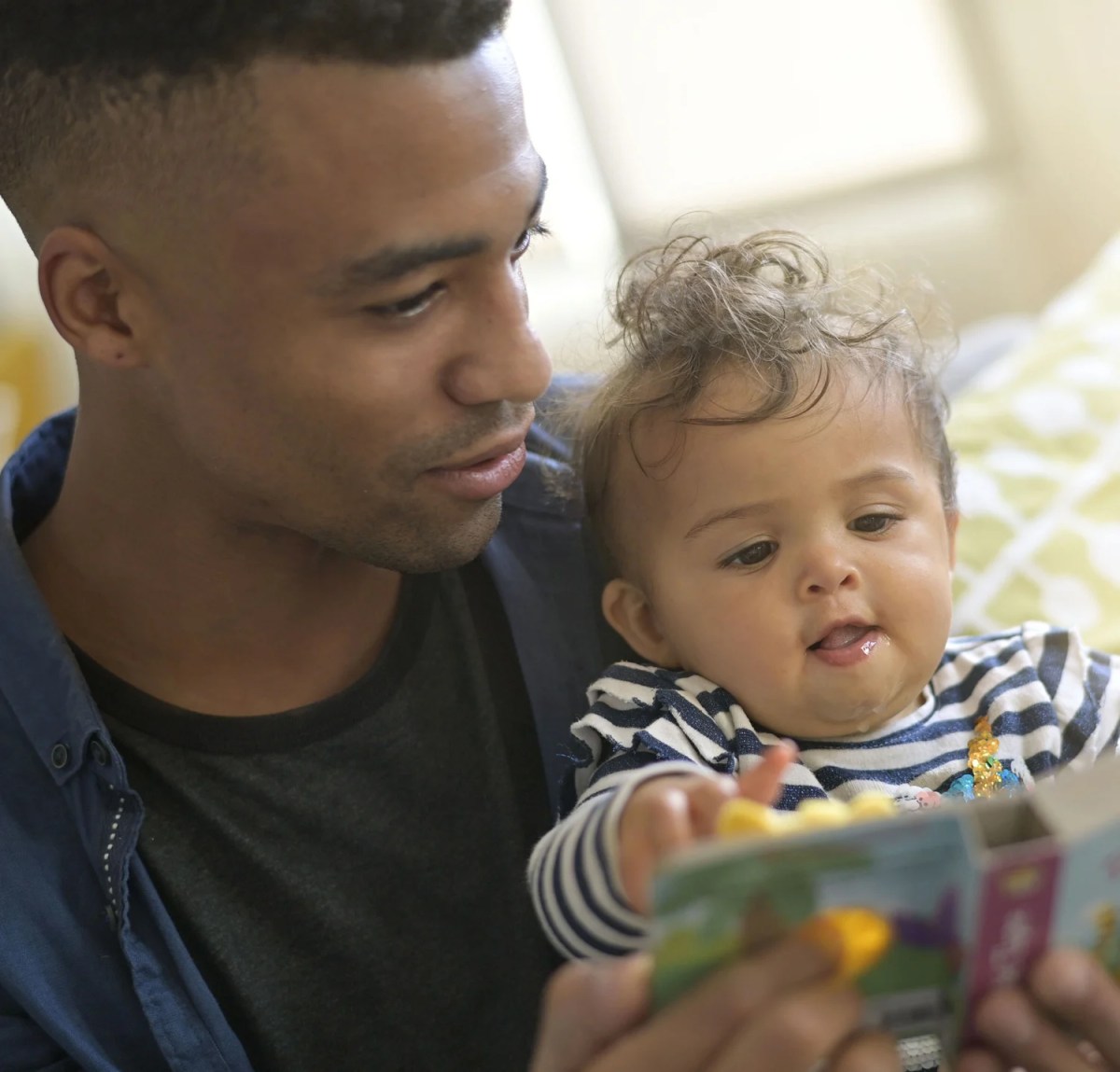Your cart is currently empty!
11 Month Old Milestones

As your baby turns 11 months old, their ability to connect the meaning of words to objects is pretty advanced. AP Baby, anyone?
Here’s What You Need To Know:
- Your baby can understand prompts during story time.
- Motor skills galore: they can clap their hands, wave bye-bye, bang toys together, and raise their arms to be picked up.
- Your little one may even say a few words.
- They are starting to expect certain outcomes from their actions. (I.e. If you usually clap when they eat their peas, they will anticipate a round of applause)
Imagination (In Spongebob Voice)
At 11 months, your baby is painting a clear picture of the characters in their story. Role play and imagination are important tools for teaching your baby about their universe. So break out the plastic hammers and play kitchen! Play utensils in the kitchen can help them feel involved during mealtime. At 11 months, babies work best at their own pace, so give them space to explore.




1. Your Baby’s Brain
Your baby is realizing that in order to reach their goals, they have to take certain steps. For example, in order to eat a bowl of cereal, they must put their spoon in the bowl, scoop up the cereal, and then put it in their mouths. Let your baby manage these tasks on their own and provide encouragement.
Now is also a great time to start teaching them the differences between right and wrong. Start by establishing consistent rules like no tearing books. Be prepared for repetition and remember to model good behavior for your little one.
2. Your Baby’s Eyes
Your baby can better detect and recognize danger. They may avoid certain locations or objects because they have realized it can hurt them. As your baby nears their first birthday, they’re likely developing a greater sense of “stranger danger.” You’ll notice that they prefer familiar faces.
They can also recognize fear. They will look to you for approval if something is unfamiliar – and will react based on your reaction.
3. Your Baby’s Muscles:
The next step on your baby’s journey to walking is a mix of standing and “cruising”. Cruising is when your baby shuffles around, using objects to keep their balance. Your baby’s legs are getting stronger day by day. They’re so close to walking, but still haven’t fully adjusted to using those larger muscles, which means they may tumble. Prepare for the occasional bonk and lots of boo-boo kissing.
A Note About Your Baby’s Shoes: If your baby is moving and grooving, but not quite walking yet, purchase lightweight shoes that are made of breathable material. That means their shoes should have a soft sole – save those hard-soled shoes for when they’re older.
However, remain cautious of small objects and redirect their attention if they’re getting grabby with objects that present choking hazards. Babies respond well to redirection over commands.
4. Your Baby’s Speech:
Around this time, your baby is honing in on their native language (the language you primarily speak to them in). Research shows that by 10 months, babies prefer listening to words that are similar to their native language. Researchers have also noted that even by this age, there are distinct differences in how vowels are articulated between American, French, Swedish, and Japanese babies.
Keeping the Germs at Bay
Studies show that infants who experience repeated infections often have weakened immune systems, brought on by a lack of nutrient-dense foods. So it’s important that your baby consumes a varied diet. They should also eat vitamins and minerals that promote a healthy immune system, such as zinc and vitamin C.
At this age, your baby is crawling, cruising, and (possibly) walking everywhere. This also means many, many more surfaces to touch. Of course, the latest studies show that early exposure to germs, such as spending time on a farm or having a dog, can help the immune system. However, it is important to be wary, especially during the dreaded flu season. Bring those antibacterial wipes to the doctor’s office and public changing tables if you can!
Goodnight moon
You’ve probably noticed that your baby is showing increasing interest in books – yay! At this age, you should read books to your baby that name or label multiple characters. Around the 11-month mark, babies will more intently focus on a book and its images if there are individual character names.
Babies respond extremely well to prompts during story time. For example, you can pause in the middle of the story and ask them to point at the red balloon on the page. Try to make story times interactive and encourage your child to participate.

Summary
Your little one’s first birthday is fast approaching, and they are growing like a weed. Pat yourself on the back for a long 11 months of setting sleep schedules, introducing new foods, and reading The Very Hungry Caterpillar too many times to count.
As your baby nears toddlerhood, they are standing up unassisted, crawling everywhere, waving “bye-bye”, recognizing their loved ones, and learning more and more each day.
This month on the Yumi Milestone Plan we introduce foods rich in iron, magnesium, potassium, and vitamin B6.











